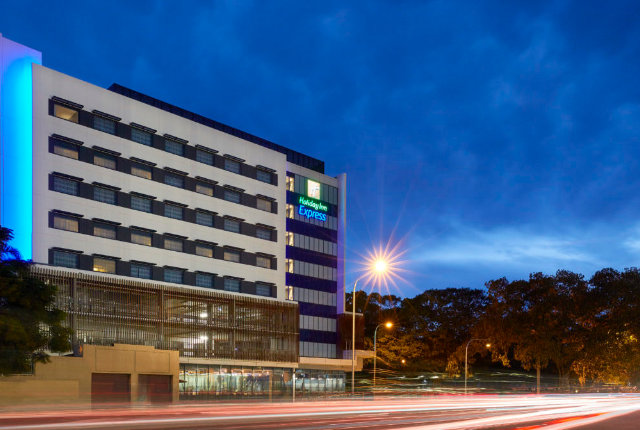
Pro-invest partners with IHG on new Holiday Inn Express in Newcastle
Pro-invest Group has taken its pipeline of Holiday Inn Express hotels in Australia to five with the unveiling of a new, 170-room hotel to be built in the centre of Newcastle.
The boutique investment firm, founded by veteran hotel developer Ron Barrott, completed a $300 million capital raising in May to fund its initial pipeline of Holiday Inn Express hotels in Australia and New Zealand, which now stands at more than1000 rooms.
The mid-scale hotels are being developed under a franchise agreement with UK-listed InterContinental Hotels Group. The first of these hotels opened in Macquarie Park, Sydney in April, with two more to open in Brisbane and Adelaide next year. A fourth Holiday Inn Express hotel is being developed on Melbourne’s Southbank after Pro-invest acquired a 1704-square-metre development site on City Road last year with plans for a 20-level hotel with 300 rooms. Mr Barrott told The Australian Financial Review the Holiday Inn Express in Newcastle, due to open on King Street in late 2017, would cater to strong demand from the corporate market in a city that is moving away from its coal-mining past.
“There’s a lack of quality hotel product designed for the corporate market in Newcastle,” Mr Barrott said.
The Holiday Inn Express brand is IHG’s no-frills, limited-service hotel offering, which runs under the tag line of giving guests “everything they need and nothing they don’t”. Average room rates in Australia are around $220 a night.IHG Chief Operating Officer for Australasia and Japan, Karin Sheppard, told the Financial Review the Holiday Inn Express brand was an attractive proposition for investors given its efficient use of space and smart design. “These hotels don’t need large meeting rooms or extensive eating facilities, which bring with them operating efficiencies,” she said.
IHG has a pipeline of 11 hotels in Australia, its strongest in a decade, including an Intercontinental Hotel to open in Perth next year and new hotels coming to Sydney, Hobart, Christchurch and Queenstown in New Zealand.
Ms Sheppard said IHG’s midscale brands were performing well and were especially popular with the growing numbers of visitors from China.She said IHG was not affected much by Airbnb because Airbnb catered for a different market, namely holiday apartments. “Airbnb is a different proposition to our core global hotel brand,” she said.
She added that IHG was focused on building direct relationships with guests by leveraging off its loyalty program and in-house distribution system.
IHG has invested heavily in its technology to attract bookings directly through its website and apps as it battles the growing market power of online travel agents such as TripAdvisor and Expedia.
“If we build a direct relationship with a guest, we can offer them a better experience, because we know more about them,” she said.
